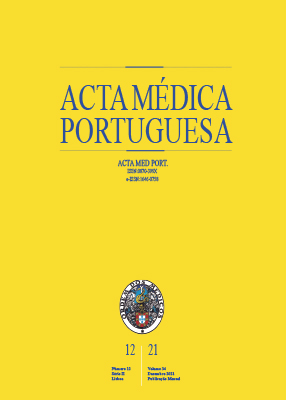Analysis of the Cochrane Review: Antiplatelet Agents for Preventing Pre-Eclampsia and Its Complications. Cochrane Database Syst Rev. 2019;10:CD004659.
DOI:
https://doi.org/10.20344/amp.15995Keywords:
Platelet Aggregation Inhibitors/therapeutic use, Pre-Eclampsia/drug therapy, Pre-Eclampsia/prevention & control, Prenatal Care, Randomized Controlled Trials as TopicAbstract
Pre-eclampsia is associated with deficient intravascular production of prostacyclin, a vasodilator, and excessive production of thromboxane, a vasoconstrictor and stimulant of platelet aggregation. These observations led to the hypotheses that antiplatelet agents, low-dose aspirin in particular, might prevent or delay development of pre-eclampsia. This Cochrane review aimed to assess the effectiveness and safety of antiplatelet agents, such as aspirin and dipyridamole, when given to women at risk of developing preeclampsia. A systematic review of literature was carried out by searching the following databases up to September 2019: Cochrane Pregnancy and Childbirth’s Trials Register, ClinicalTrials.gov, the WHO International Clinical Trials Registry Platform (ICTRP), and reference lists of retrieved studies. Seventy-seven trials were included, including 40 249 women at risk of developing pre-eclampsia. About 80% of these women were evaluated in nine of the 77 trials included, with eight of these nine trials providing individual data. Interventions were administration of an antiplatelet agent, and comparisons were either placebo or no antiplatelet. The present review provides high-quality evidence that administering low-dose aspirin (50 - 150 mg) to pregnant women led to small-to-moderate benefits, including reductions in the risk of pre-eclampsia, preterm birth, small-for-gestational age fetus, and fetal or neonatal death. Overall, administering antiplatelet agents to 1000 women led to 20 fewer pregnancies with serious adverse outcomes.Downloads
Downloads
Published
How to Cite
Issue
Section
License
Copyright (c) 2021 Acta Médica Portuguesa

This work is licensed under a Creative Commons Attribution-NonCommercial 4.0 International License.
All the articles published in the AMP are open access and comply with the requirements of funding agencies or academic institutions. The AMP is governed by the terms of the Creative Commons ‘Attribution – Non-Commercial Use - (CC-BY-NC)’ license, regarding the use by third parties.
It is the author’s responsibility to obtain approval for the reproduction of figures, tables, etc. from other publications.
Upon acceptance of an article for publication, the authors will be asked to complete the ICMJE “Copyright Liability and Copyright Sharing Statement “(http://www.actamedicaportuguesa.com/info/AMP-NormasPublicacao.pdf) and the “Declaration of Potential Conflicts of Interest” (http:// www.icmje.org/conflicts-of-interest). An e-mail will be sent to the corresponding author to acknowledge receipt of the manuscript.
After publication, the authors are authorised to make their articles available in repositories of their institutions of origin, as long as they always mention where they were published and according to the Creative Commons license.









